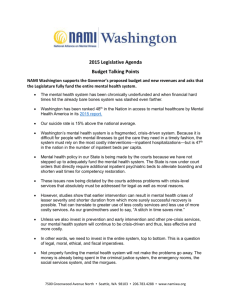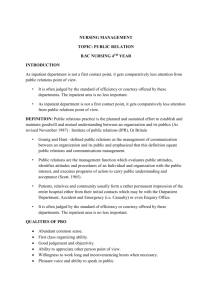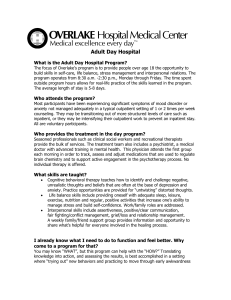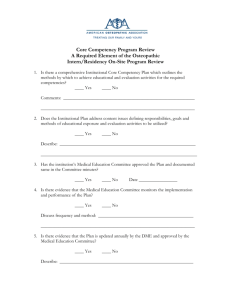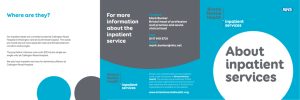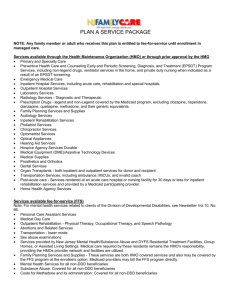Inpatient Pediatrics – End of Rotation Resident Evaluation
advertisement
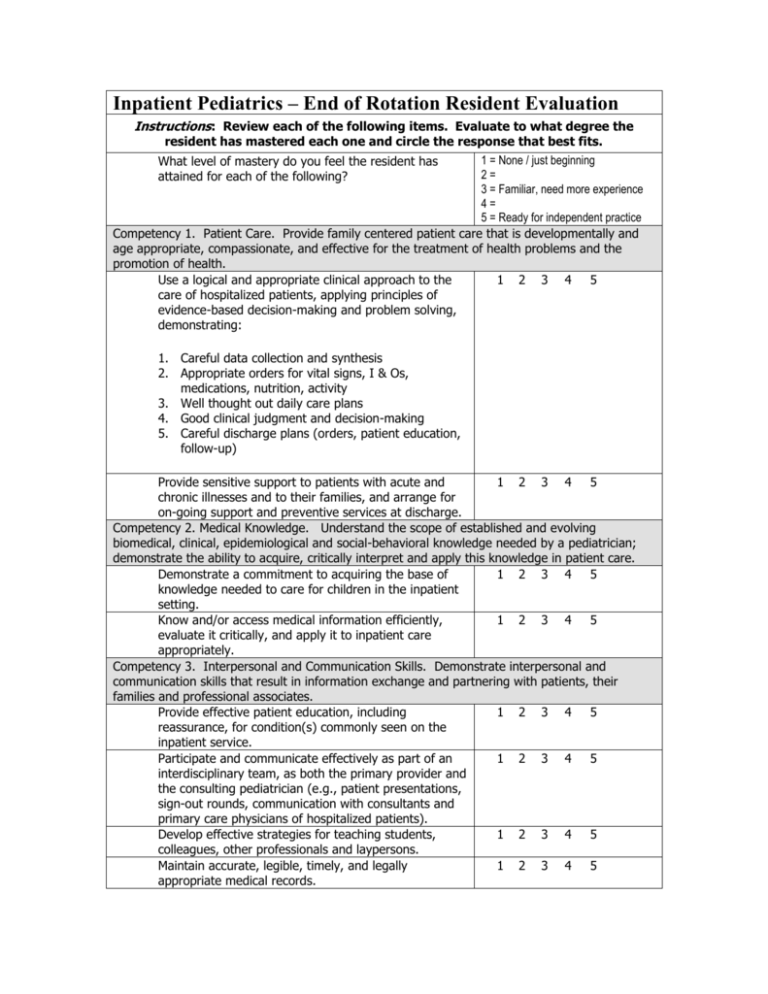
Inpatient Pediatrics – End of Rotation Resident Evaluation Instructions: Review each of the following items. Evaluate to what degree the resident has mastered each one and circle the response that best fits. 1 = None / just beginning What level of mastery do you feel the resident has 2= attained for each of the following? 3 = Familiar, need more experience 4= 5 = Ready for independent practice Competency 1. Patient Care. Provide family centered patient care that is developmentally and age appropriate, compassionate, and effective for the treatment of health problems and the promotion of health. Use a logical and appropriate clinical approach to the 1 2 3 4 5 care of hospitalized patients, applying principles of evidence-based decision-making and problem solving, demonstrating: 1. Careful data collection and synthesis 2. Appropriate orders for vital signs, I & Os, medications, nutrition, activity 3. Well thought out daily care plans 4. Good clinical judgment and decision-making 5. Careful discharge plans (orders, patient education, follow-up) Provide sensitive support to patients with acute and 1 2 3 4 5 chronic illnesses and to their families, and arrange for on-going support and preventive services at discharge. Competency 2. Medical Knowledge. Understand the scope of established and evolving biomedical, clinical, epidemiological and social-behavioral knowledge needed by a pediatrician; demonstrate the ability to acquire, critically interpret and apply this knowledge in patient care. Demonstrate a commitment to acquiring the base of 1 2 3 4 5 knowledge needed to care for children in the inpatient setting. Know and/or access medical information efficiently, 1 2 3 4 5 evaluate it critically, and apply it to inpatient care appropriately. Competency 3. Interpersonal and Communication Skills. Demonstrate interpersonal and communication skills that result in information exchange and partnering with patients, their families and professional associates. Provide effective patient education, including 1 2 3 4 5 reassurance, for condition(s) commonly seen on the inpatient service. Participate and communicate effectively as part of an 1 2 3 4 5 interdisciplinary team, as both the primary provider and the consulting pediatrician (e.g., patient presentations, sign-out rounds, communication with consultants and primary care physicians of hospitalized patients). Develop effective strategies for teaching students, 1 2 3 4 5 colleagues, other professionals and laypersons. Maintain accurate, legible, timely, and legally 1 2 3 4 5 appropriate medical records. Competency 4. Practice-based Learning and Improvement. Demonstrate knowledge, skills and attitudes needed for continuous self-assessment, using scientific methods and evidence to investigate, evaluate, and improve one's patient care practice. Use scientific methods and evidence to investigate, 1 2 3 4 5 evaluate, and improve one's patient care practice in the inpatient setting. Identify personal learning needs, systematically 1 2 3 4 5 organize relevant information resources for future reference, and plan for continuing acquisition of knowledge and skills. Competency 5. Professionalism. Demonstrate a commitment to carrying out professional responsibilities, adherence to ethical principles, and sensitivity to diversity. Demonstrate personal accountability to the well being 1 2 3 4 5 of patients (e.g., following-up lab results, writing comprehensive notes, and seeking answers to patient care questions). Demonstrate a commitment to professional behavior in 1 2 3 4 5 interactions with staff and professional colleagues. Adhere to ethical and legal principles, and sensitivity to 1 2 3 4 5 diversity while providing care in the inpatient setting. Competency 6. Systems-Based Practice. Understand how to practice high quality health care and advocate for patients within the context of the health care system. Identify key aspects of health care systems, cost 1 2 3 4 5 control, billing, and reimbursement in the hospital inpatient setting. When providing care in the inpatient setting, consider 1 2 3 4 5 cost and resource allocation without compromising quality of care. Take steps to avoid medical errors by recognizing the 1 2 3 4 5 limits of one's knowledge and expertise; work with the health care team to recognize and address systems errors.
